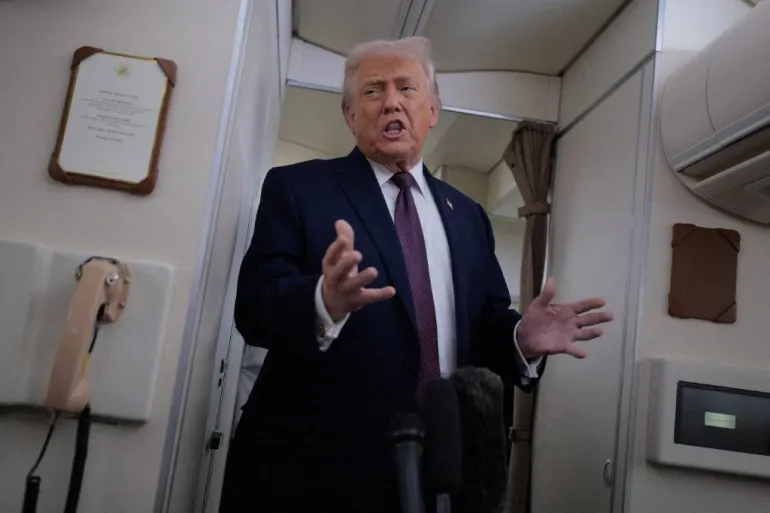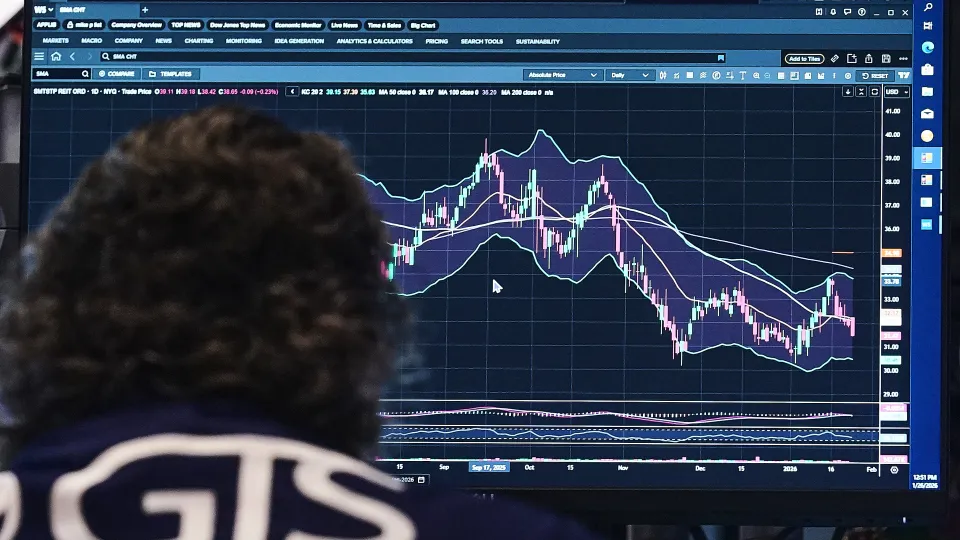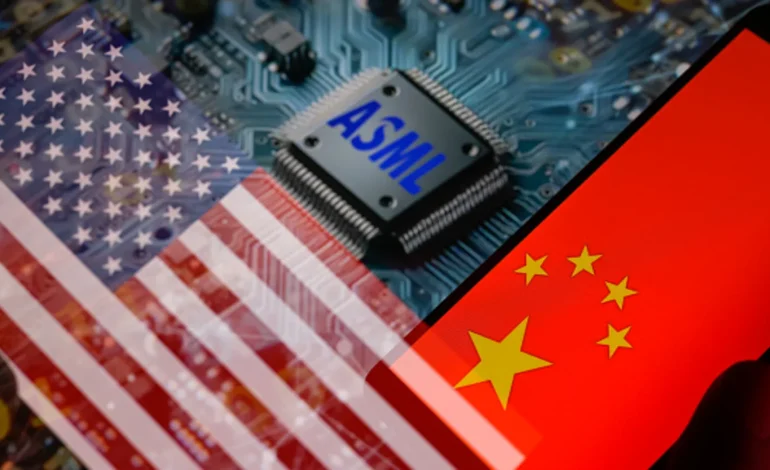Shares of major semiconductor equipment companies saw significant gains on Thursday following reports that the US is considering a more moderate approach to sanctions on China’s semiconductor industry.
The news suggested that the US may ease some of the earlier, stricter proposals that could have had a more severe impact on the sector.
ASML, a key player in the semiconductor equipment market, saw its stock rise by approximately 3.6% in early European trading. In Japan, shares of Tokyo Electron surged by over 6%. Both companies are integral to the global semiconductor supply chain, with their products used by chip manufacturers worldwide.
According to a Bloomberg report, the US is weighing new measures that would restrict sales of semiconductor equipment and artificial intelligence memory chips to China. However, these potential sanctions may be less severe than previous proposals, which had been criticized for their strictness.
The US government is reportedly considering fewer additions to its Entity List, which includes companies prohibited from receiving certain technologies. One notable company that would not be added to the list is ChangXin Memory Technologies, a Chinese memory chip maker that competes with global giants such as SK Hynix and Samsung.
Analysts from Jefferies noted that ASML had anticipated a 30% drop in its revenue from China next year due to existing restrictions. However, with the exclusion of ChangXin Memory Technologies from the blacklist, ASML’s revenue decline in China may be less pronounced than originally expected.
ASML’s role in the semiconductor industry is critical, particularly due to its advanced lithography machines that are essential for manufacturing state-of-the-art chips. The company has faced significant challenges as the US and China have implemented export controls targeting the most advanced semiconductor production technologies. While some of ASML’s equipment remains restricted from being exported to China, less advanced machines have faced increasing difficulty entering the Chinese market due to additional restrictions imposed by both the Dutch and US governments.
The reported shift in US policy also suggests that future sanctions might target Chinese companies involved in semiconductor manufacturing equipment, rather than the fabs (fabrication plants) that produce the chips themselves. This would likely benefit ASML and other international semiconductor equipment manufacturers who sell to these fabs, as it would mitigate potential disruptions in demand for their products.










The latest news in your social feeds
Subscribe to our social media platforms to stay tuned